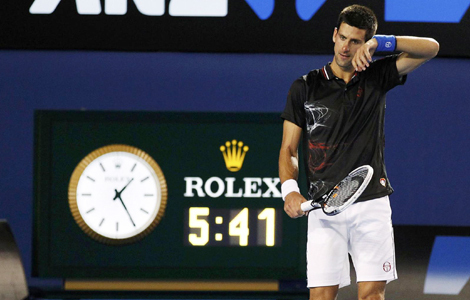Wen looks at the big picture of Sino-US co-op
Updated: 2012-01-12 07:04
By Ding Qingfen, Hu Yinan and Cheng Guangjin (China Daily)
|
|||||||||
|
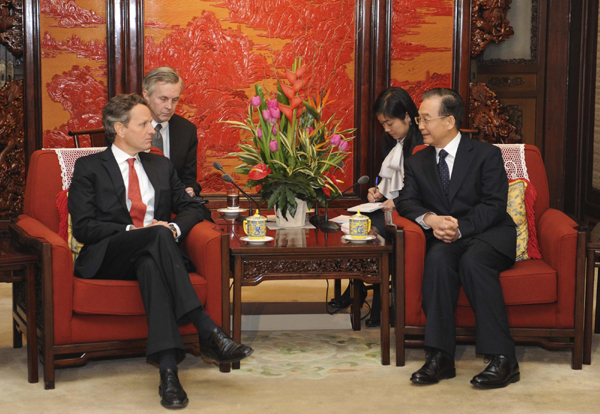 |
|
Chinese Premier Wen Jiabao (right) meets visiting US Treasury Secretary Timothy Geithner in Beijing on Wednesday. [Photo/Xinhua] |
China and the US should focus on common interests, premier says
BEIJING - China and the United States should enhance economic and trade cooperation rather than politicize economic issues, leading government officials said on Wednesday.
"China insists that dialogue is better than confrontation, cooperation is better than containment," Premier Wen Jiabao said as he met US Treasury Secretary Timothy Geithner.
"We should take care of the core interests and concerns of each other, and resolve friction appropriately," Wen said.
"Both countries should take concrete measures and promote cooperation in trade, investment, infrastructure and high-tech, in a wider, closer, more balanced way."
Wen's remarks came against a backdrop of economic and trade friction between China and the US.
The Wall Street Journal on Tuesday reported that US President Barack Obama plans to form a government taskforce to monitor China's compliance with US trade rules.
Confirmation is expected later this month, it said.
Late last month wind turbine manufacturers in the US filed a complaint with the US Department of Commerce and the International Trade Commission claiming that China and Vietnam were dumping products at below-cost prices and receiving government subsidies.
It follows a probe into solar panel manufacturers in China by a group of US companies last October.
"This year is of decisive importance for both China and the US maintaining stable development for China-US relations is very important," Vice-President Xi Jinping said during his meeting with Geithner on Wednesday.
"China is willing to expand economic and financial cooperation with the US, resolving friction through consultation rather than politicizing economic issues. This will help maintain sustainability of the two economies and allow the world economy to recover sooner."
Geithner said the US agreed with China on developing "closer" economic and trade cooperation, promoting economic growth for the two economies and maintaining global financial stability.
But experts doubt whether the US would actually transfer words into action. "This is a very tough year for the global economy. As the world's leading economies, China and the US should be cautious and responsible," said Zhang Yansheng, professor at the Institute for International Economic Research of the National Development and Reform Commission.
November will see a US presidential election and before that there will be polls in Greece and France.
"Unfortunately, what the US has done in the past few months is not reasonable, ranging from the solar panel probe to currency pressures and the Trans-Pacific Partnership Agreement," Zhang said. The agreement is a trade pact being negotiated by the US with some countries in the region.
The US Treasury Department said in its twice-yearly report last month on global currencies that the yuan is substantially undervalued and the US will "press for policy changes that yield greater exchange-rate flexibility".
The US has been pressurizing the government to appreciate the yuan. In actual fact, the yuan has appreciated by about 8 percent since China allowed greater fluctuation in June 2010.
Iran oil
Iran was reportedly raised in the talks. According to media reports, Geithner appealed for China's support for tougher sanctions on Iran - an important source of oil for China.
Reuters quoted Geithner as telling Xi that on issues, including non-proliferation, "we have what we view as a very strong cooperative relationship with your government and we are looking forward to building on that".
China on Wednesday called on Iran and the International Atomic Energy Agency (IAEA) to cooperate over a new uranium enrichment plant, as talks of unilateral sanctions on Iran loom large just days ahead of a landmark visit to three Arab nations by Premier Wen Jiabao.
"We hope Iran and the IAEA will cooperate, ensure safeguards and clarify pending issues in the Iranian nuclear program as soon as possible," Foreign Ministry spokesman Liu Weimin said.
Insisting that its nuclear programs are for peaceful purposes, Teheran has said it will not abandon uranium enrichment activities and is threatening to shut down the strategic Strait of Hormuz if the US and the European Union impose oil embargoes.
Washington does not have much faith in the outcome of Geithner's visit, said Ye Hailin, a researcher at the Chinese Academy of Social Sciences.
Explaining the rationale for sanctions on Teheran is a major reason for Geithner's trip to Beijing, Ye said. "If China disagrees (to US sanctions), Washington can then use this opportunity to mess up Beijing's relations with its Western allies and Arab nations," he said.
"For the Chinese, Sino-Iranian trade in fact has nothing to do with the US," Ye said.
The Republic of Korea and Japan both depend heavily on Iranian oil and are turning to other suppliers. Geithner is scheduled to hold talks with Japan's Prime Minister Yoshihiko Noda and Finance Minister Jun Azumi in Tokyo on Thursday.
Foreign Ministry spokesman Liu said China "has reasonable demands for energy" as a major developing country. "Regarding this issue, we have repeatedly stated that China has normal and transparent energy cooperation with Iran, and that does not violate Security Council resolutions."
Cui Haipei and Wang Chenyan contributed to this story.
Related Stories
Sino-US poultry dispute is making feathers fly 2011-12-10 09:07
US politicians should promote Sino-US relations 2012-01-11 20:09
Project rallies for China-US friendship 2011-12-17 08:23
Stability key to China-US ties 2011-11-20 08:06
Hot Topics
Kim Jong-il, Mengniu, train crash probe, Vaclav Havel, New Year, coast guard death, Internet security, Mekong River, Strait of Hormuz, economic work conference
Editor's Picks
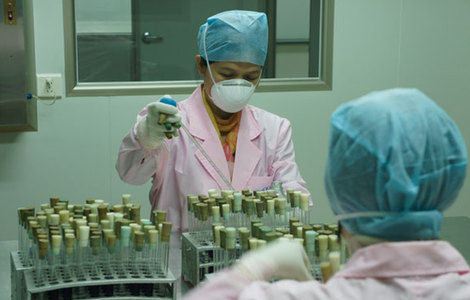
|
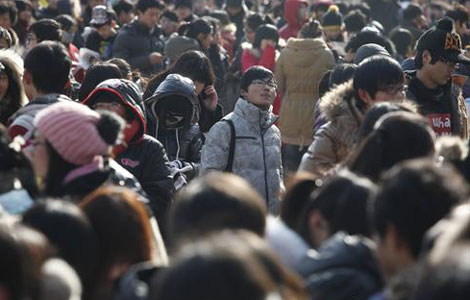
|
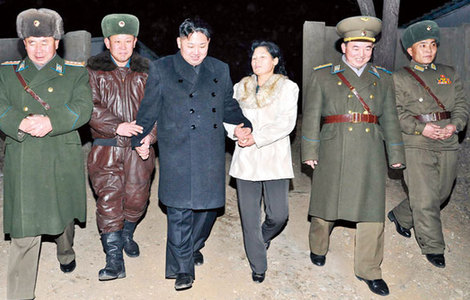
|
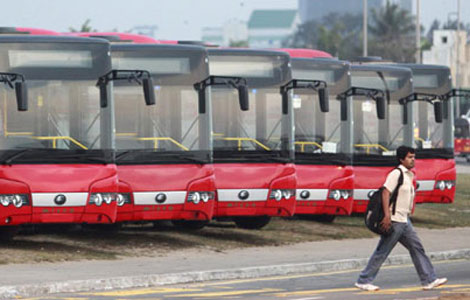
|

|

|


